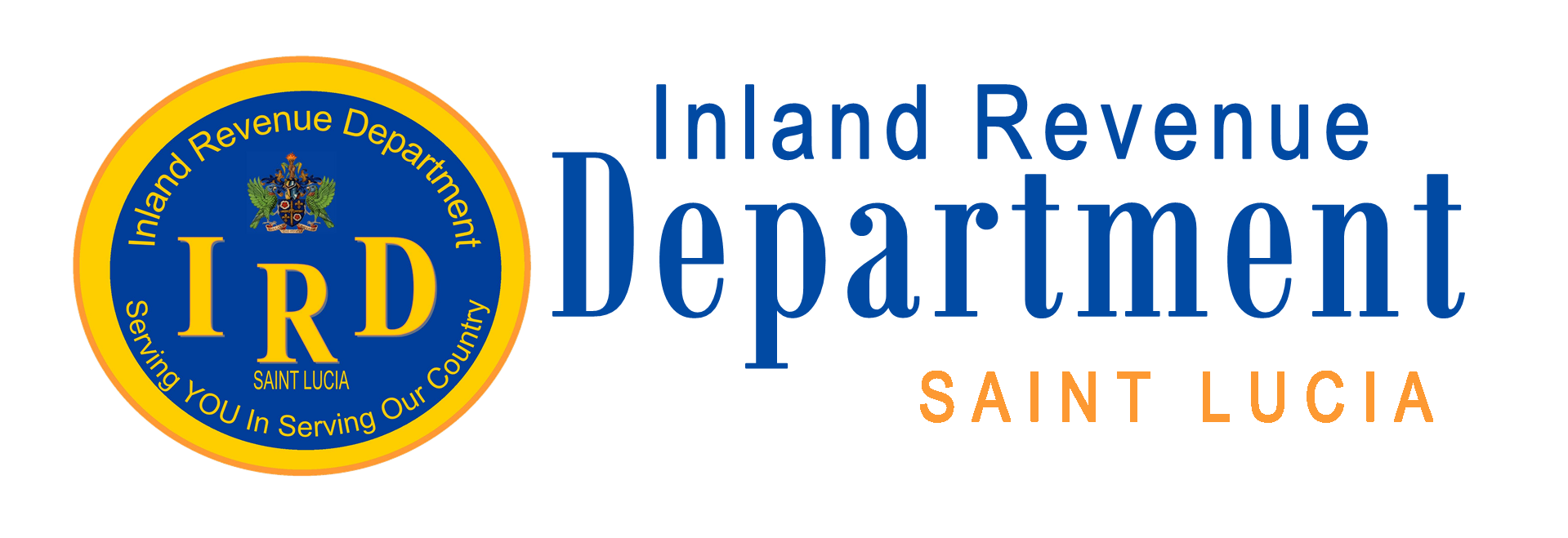I have three insurance policies for my children and myself, which amount to $4,000 yearly. Do I claim the entire amount paid as a deduction?
The Tax Act grants a relief for premiums for insurance on your life or that of your spouse or child or other dependents. It must be noted however, that the amount of insurance allowable shall not exceed the lower of (a) one tenth of your assessable income less NIS contributions or (b) $8,000.
I have an insurance policy which I took in 1976 with an overseas based Insurance Company. Can I claim as a deduction the premiums that I paid to the company?
Yes. Premiums paid to a company in respect of a policy in effect after 1972, with a company not doing business in St. Lucia are allowable as a deduction. The amount allowable however is 50% of the premium paid to the company. The deduction is limited to the higher of:
- One twentieth of your assessable income or
- $3,000
I pay the mortgage interest, house insurance premiums, house tax and maintenance expenses on my parent's house. Am I entitled to claim for these as deductions?
The Tax Law grants relief to a taxpayer who has taken a loan to acquire a dwelling house which is occupied by himself either alone, or together with his family, or occupied rent free by members of his family. This relief is also in respect of any rates, taxes, insurance premiums and expenses reasonably incurred in the upkeep and maintenance of the house.
In circumstances where for economic or the reasons you have taken over the mortgage on your parent's house the Department will allow you to claim the expenses on sufficient proof that your parent's house is your principal place of residence.
Interest on a loan for the acquisition or construction of or improvements to an owner occupied dwelling house is allowable up to a maximum of $15,000. The interest claimed must be substantiated by a statement from the lending institution indicating the purpose of the loan and interest paid during the income year.
I pay subscriptions for shares with the St. Lucia Civil Service Credit Union. Can I claim for this?
Yes. Relief is granted up to a maximum of $3,600 to an individual who makes payments by way of subscriptions to a society registered under the Co-operatives Societies Act. Therefore, shares taken with registered Credit Unions are allowable and a statement indicating the shares contributed must be attached. However, there are specific provisions in the Income Tax Act which apply with respect to the disposal of these shares.
In an effort to secure funds to build my home, a Savings Plan was started with Bank of Saint Lucia. Can I claim this amount as a deduction?
Yes. You are entitled to a deduction not exceeding six thousand dollars $6,000 for payments made under a Registered Home Ownership Savings Plan.
This deduction can only be claimed by a resident individual who has not previously owned a home in St. Lucia.
In 1999, I took a loan to pursue a degree programme at the University of the West Indies. Is this an allowable deduction?
Yes. A resident individual is entitled to deduction of a maximum of three thousand dollars ($3,000) in respect of any amount paid during the year of income by way of interest on money borrowed to finance his/her tertiary education.
I invested in the purchase of a solar water heater during 2001. Can I claim the expenses which I incurred?
Yes. An individual may claim expenses amounting to six thousand, five hundred dollars ($6,500) for the purchase and installation of a new solar water heater system.
This deduction would only be allowed for income years 2001 to 2005, and 2007.
I took advantage of the offer made by the Bank of St. Lucia and purchased shares. Can I claim for this?
Yes. A deduction shall be allowed to a resident individual who purchases newly issued shares in a resident public company. This deduction is limited to five thousand dollars ($5,000).
I have a medical policy I paid premiums totalling $900 for the year. Can I claim the total premiums as a deduction for medical expense of is it limited to the maximum allowed without bills, which is $400?
Yes. The total premiums paid for the year under a Medical Insurance is allowed as a deduction.
I paid premiums for the year of $750 towards a Medical policy, however, during the year I paid medical bills of $1,500 and was only reimbursed $500. Am I still entitled to a deduction and if so how much?
Yes. You are entitled to the difference of the total medical bills paid and the reimbursed amount. This difference will then be added to your total premium paid for the year.
In the example given, the calculation will be as follows:
- Total medical premiums paid $ 750
- Total medical bills paid $1,500
- Total reimbursed (500)
- Amount not reimbursed 1,000
- Amount allowed as a deduction $1,750
I make contributions annually to the World Wide Church of God can I claim for this as a donation?
No. This claim will only be allowed if the contribution is made under a deed of covenant for a period not less than three years.
It must be noted that the amount allowable is restricted to twenty-five percent (25%) of your assessable income for the year in question.
What are some of the business expenses which can be claimed by the self-employed?
Claims can be made against the total income for expenses which were wholly and exclusively incurred in the production of such income. Some of these claims are follows:
- Salaries & Wages
- Stationery/Postage
- Advertising
- Repairs
- Rates & Taxes applicable to the business
- Bad Debts
- Motor Vehicle operating expenses applicable to the business
- Utilities & Telephone
- Rent on business property
- Employers contribution to Social Security
- Bank Interest & Charges
- Legal & Professional Fees
It should be noted that where the expenses relate to both private and business use the amount should be apportioned accordingly.
Is there a specified period of time in which the books and records of a business must be maintained?
The Income Tax Act of 1989 requires that all books of account and other records of a business be preserved for a period of six years after the end of the year of income to which these books of records relate. In certain circumstances the Comptroller may approve the disposal of such books/records prior to the six year period.
Is Agricultural income exempt?
Yes. Income earned by an individual from fishing or agriculture is exempt. This includes horticulture, the use of land for husbandry including the keeping of livestock or poultry or the growing of crops, fruits or vegetables.
It must be noted that losses from exempt income cannot be set off against any other source of income or activity.
How is Wear & Tear (Capital Cost Allowance) granted on fixtures and equipment used in business?
There are set rates specified by the Income Tax Act. By these claims for Wear & Tear the cost of the asset for use in the business is written off (using the reducing balance method) over a period of time. The basic rates are as follows:
- Motor Vehicles 25%
Furniture 15%
Office Equipment 15%
To illustrate:
Suppose a motor vehicle was purchased for $10,000. The calculation of allowances in the year of acquisition is as follows:
|
Description |
$ |
$ |
|
Cost of Vehicle |
$10,000 |
|
|
Initial Allowance - 20% |
2,000 |
|
|
Annual Allowance - 25% |
2,500 |
|
|
Total Allowance |
4,500 |
|
|
Written Down Value |
$ 5,500 |
Subsequent annual allowances are calculated on the written down value.
You are entitled to claim an initial allowance in the year of acquisition.
A list of all assets and applicables can be obtained from the Inland Revenue Department upon request.
I am provided with a vehicle by my company for my exclusive use on the job. Is this considered as a benefit? If so, how is this calculated?
Yes. This is considered to be a taxable benefit and the amount must be included as part of your employment income. The benefit is calculated as follows:
» In the case where the vehicle is purchased locally:
15% of the listed selling price of the vehicle Imported into the country directly or indirectly by your employer.
» 15% of the landed cost of motor vehicle plus all local charges i.e. 15% (landed costs + local charges)
Should the vehicle be leased, the benefit is calculated as:
» 40% of the leased cost to the employer.
What are concessional deductions?
- Personal Allowance - 18,000
- Spouse Allowance - 1,500
- Child under 10 years - 1,000
- Child Education (student over ten years) - 2,000
- Higher Education Deduction - 5,000
- Housekeeper - 200
- Dependent Relative - 350
- Medical Expenses - 400 (minimum)
- Life Insurance plus NIC - should be the lower of 1/10 of assessable income or $8,000.00
- Mortgage Interest - 18,000 (maximum)
- Deed of Covenant (Religious, Charitable, Medical, Educational } - 25% of assessable income (maximum)
- Credit Union/Co-operative Shares - 5,000 (maximum)
- Student Loan Interest - 3,000 (maximum)
- Registered Home Ownership Savings Plan - 6,000 (maximum)
- Hobby Farming as per certificate from Ministry of Agriculture - 1,000, 2,500 & 5,000
- Shares in a Public Company - 5,000 (maximum)
- Travel Allowance with accompanying form- 6,000 (maximum)
What are the Income Tax Rates?
On the Chargeable Income of every individual, unincorporated body of persons or trustee:
- From $0 - up to $10,000 10%
- From $10,001 - up to $20,000: 15% plus $1,000
- From $20,001 - up to $30,000: 20% plus $2,500
- From $30,001 - over $30,000: 30% plus $3,500
On the Chargeable Income, on every dollar thereof, of:
- Companies 33 1/3%
- New small business enterprises:
- for the first income year 25%
- for the second income year 30%
- for the third and subsequent years 33 1/3%
*From Income Year 2001 – 2005: 10%
What are the penalties for infringement of the Tax Laws?
Failure to file an Income Tax Return:
- The Inland Revenue Department shall impose a penalty not exceeding 5 percent (5%) of tax charged where a taxpayer does not file an Income Tax Return within the prescribed time or any extended time granted. [Section 120]
Failure to produce Books & Records:
- If the Inland Revenue Department requests a taxpayer to produce books and records and he does not comply, a penalty not exceeding five hundred dollars shall be imposed, he can, on summary conviction, be fined one thousand dollars ($1,000) and can be imprisoned for one year. [Section 124/128]
False statements, Declarations or Records:
- Any person who knowingly gives false information to the Inland Revenue Department or who wilfully seeks to evade assessment or liability to tax is guilty of an offence, and can, on summary conviction be fined two thousand dollars ($2,000) or imprisoned for two years. [Section 129]
Failure to Deduct Tax:
- Inland Revenue shall impose a penalty of ten percent of the tax which should bee deducted, where a taxpayer fails to deduct or account for tax which should have been deducted. This is in addition to any interest charges which have accrued. [Section 122]
Failure to Deduct Withholding Tax & Tax from Payments to Contractors:
- Any person who fails to deduct withholding tax or tax from a payment to a contractor is guilty of an offence and can on summary conviction, be fined one thousand dollars ($1,000) or imprisonment for one year. [Section 130]
Failure to Furnish Correct Return of Income:
- Where any person fails to furnish a correct return of income for any year of income by reason of:
- his failure to disclose any assessable income accrued to him from any source;
- the deduction or set off by him of any amount which is not allowable as a deduction or set off;
- the claim by him of an expenditure or loss of an amount which was not expended or lost; or
- his failure to disclose any fact, the disclosure of which would result in an increase in his ability to tax,
- he shall be liable to a penalty in accordance with the following paragraphs.
- Where the incorrectness of the return of income or the information was attributable to:
- neglect or carelessness, he shall be liable to a penalty not exceeding the amount of tax which would have been lost if he had been assessed on the basis of the incorrect return or information furnished by him; or
- fraud or wilful default, he shall be liable to a penalty not exceeding twice the amount of tax which would have been lost if he had been assessed on the basis of the incorrect return or information furnished by him.
- If, for any year of income, determination of chargeable income of any person results in as assessed loss, and the amount of such a loss is less than it would have been if it had been calculated on the basis of the return of income or information furnished by him by reason of any of the circumstances specified in subsection (1) and such incorrectness of the specified in information was due to neglect, carelessness, fraud or wilful default, he shall be liable to a penalty not exceeding ten percent of the difference between those amounts. [Section 120]
Failure to Pay Tax by Due Date:
- Inland Revenue shall impose a penalty of ten percent (10%) of the tax which is due, where a taxpayer fails to pay the whole or part of an instalment of tax which is due, or the balance of any tax to which he is liable. This is in addition to any interest charges which have accrued. [Section 122]
Failure to comply with notice to give information, produce documents or give evidence to the Comptroller:
Any persons who fail to comply within a specified period of time with a notice issued by the Inland Revenue Department to produce books of accounts, or documents, furnish returns or information on behalf of himself or any other person shall be liable to a penalty not exceeding five hundred dollars ($500.00). [Section 124]









